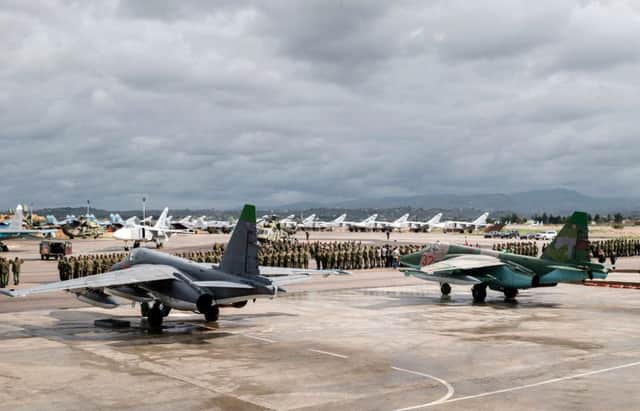Is it legal for UK to take military action in Syria?


Professor James Sweeney, an expert in international law at Lancaster University Law School, spoke to the about the situation.
Is it legal for the UK to take military action against the Assad regime?
Advertisement
Hide AdAdvertisement
Hide Ad“There are very few justifiable ways of using force in international law,” said Prof Sweeney.
While the UK has justified military action against Islamic State in Syria on the basis of a right to self-defence, this argument would not hold up in the current context as Assad’s alleged use of chemical weapons has been against his own people, rather than other countries, the academic said.
There is some support for a right to use force to prevent humanitarian catastrophe, but it is not a universally accepted view, he added.
He said: “The clearest, albeit most conservative, view would be that there is no right of humanitarian intervention, which makes unilateral action against Syria deeply questionable.”
How likely is it that the United Nations Security Council (UNSC) would authorise the use of armed force on humanitarian grounds?
In a word, unlikely. Russia and China, as two of five permanent members of the UNSC, have vetoes which can vote down any resolution or decision.
Their longstanding opposition to the idea of intervening in other countries, coupled with Russia’s backing of the Assad regime, means it is “virtually certain that Russia and probably China would veto any attempt to get permission to use force in Syria,” Prof Sweeney said.
Surely Assad’s suspected use of chemical weapons justifies Britain taking military action against the regime?
Advertisement
Hide AdAdvertisement
Hide AdWhile the alleged gassing of civilians in Syria is “undoubtedly an awful situation”, the use of force against the law would end up opening the door to other countries, including Russia, to do the same, Prof Sweeney said.
He said an alternative argument could be that there was an “emerging customary international legal norm” that provides for a right of intervention to punish the use of chemical weapons, and prevent further use.
He added: “It isn’t a widespread view, it has to be said.
“But if I were the attorney general I would be going down that route if I had to justify the use of force overseas in this case.”
Could Assad be prosecuted in the International Criminal Court (ICC)?
Again, as things stand, this looks unlikely.
Syria is not signed up to the Rome Statute, which established the ICC, therefore the situation would have to be referred to the court by the UNSC.
Again, as Russia is an ally of Assad it is almost certain the member state would veto such a move.
Looking to the future, Prof Sweeney said a regime change could see Assad eventually held accountable.
He said: “Regimes like this by definition are unstable and nobody quite knows what’s around the corner. We know the extremely grim fate that came to (the late Libyan leader) Gaddafi.
“It’s difficult to predict but things on the ground do change and it’s possible a different Syrian regime in the future would see things differently and take it upon itself to hold Assad to account.”
